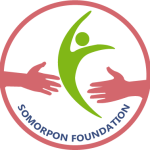Graduation, Aftercare & Lifelong Recovery Plan: Sustaining the Journey Beyond Treatment
At Somorpon Foundation, we believe that the end of a residential treatment program is not the end of the recovery journey—it is the beginning of a new, empowered life. As a drug and alcohol rehabilitation centre for men, we are committed not just to treatment within our walls, but to preparing every resident for life beyond—a life that is meaningful, stable, and free from addiction.
Our program, rooted in the Therapeutic Community (TC) model and supported by evidence-based therapies, culminates in a structured and celebratory graduation process, followed by a personalized aftercare and lifelong recovery plan.
Graduation: A Milestone of Growth
Graduation or completion of treatment at Somorpon Foundation is a powerful and emotional milestone. It marks the successful completion of our phase-wise rehabilitation process, where individuals have demonstrated growth, responsibility, emotional maturity, and readiness to reintegrate into society.
The completion of treatment process includes:
- Final review of treatment goals and personal progress
- Community acknowledgment and celebration
- Sharing of personal recovery journey with peers
- Preparation for re-entry into family, work, and community life
Completion of treatment is not only a farewell—it is a symbol of transformation. It gives hope to those still in treatment and recognizes the hard-earned achievements of the graduate.
Aftercare Planning: Transitioning with Support
The transition from a structured residential environment to independent life can be challenging. That’s why every graduate at Somorpon Foundation receives a customized aftercare plan to help maintain recovery outside the centre .
Our aftercare services include:
- Outpatient counselling and follow-up sessions
- Support group referrals such as 12-step programs or local recovery circles
- Ongoing case management and contact with clinical staff
- Vocational guidance, skill-building, and job placement support
- Family reintegration counselling to strengthen home environments
Residents are encouraged to maintain a strong connection with the recovery community, attend alumni meetings, and reach out for support whenever needed. Recovery is never walked alone.
Lifelong Recovery Plan: A Commitment to Self and Growth
Recovery is not a one-time decision—it is a lifelong commitment. At Somorpon Foundation, we emphasize long-term strategies for relapse prevention, emotional well-being, and personal fulfillment.
A lifelong recovery plan includes:
- Daily routines and coping strategies for stress and triggers
- Personal goals related to health, relationships, and career
- Self-care practices, mindfulness, and continued therapy (if needed)
- Healthy lifestyle habits like exercise, nutrition, and time management
- Community engagement and meaningful hobbies
We also offer continued support through alumni events, mentorship opportunities, and crisis intervention if needed.
At Somorpon Foundation, successful completion of treatment is a gateway—not an end. Through structured aftercare and a well-thought-out recovery plan, our goal is to empower every individual to lead a fulfilling, drug-free life, with resilience, dignity, and hope.
Because recovery doesn’t stop when treatment ends—
it begins when you take it into the world.











